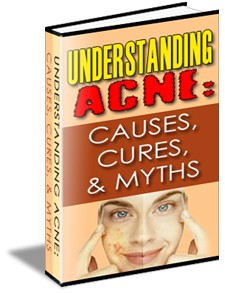 License Type: Resell Rights
License Type: Resell Rights  File Size: 636 KB
File Size: 636 KB File Type: ZIP
File Type: ZIP
 SKU: 16581
SKU: 16581  Shipping: Online Download
Shipping: Online Download
Ebook Sample Content Preview:
Chapter 8: Over-the-Counter Acne Remedies
There are many types of over-the-counter treatments for acne. When dealing with acne, most people run to the local pharmacy and buy some sort of over-the-counter medication on the basis of recommendations from their friends or perhaps even television ads. Yet despite friendly suggestions, it is a good idea to consult with a physician before using any kind of over-the-counter medication. Even though acne is generally a benign condition, a doctor or dermatologist can advise you on what the best course of treatment might be as well as provide further suggestions based on the particular kind of acne you may be suffering from.
Considering the fact that a large number of acne treatment products are available, it can be hard to choose which one to try. You should not rely strictly upon the advice of friends or family because what may work for one person may not work for another. Further, you should have some background knowledge about the active ingredients in various acne medications, so you can make a better-informed choice.
One of the most popular ingredients in acne medications is benzoyl peroxide. Found in gels and ointments, it helps by combating the bacteria that generally help cause acne. It is also useful for removing dead skin cells that accumulate on the surface of the skin. It is these dead skin cells which combine with sebum to create blackheads and whiteheads.
Benzoyl peroxide has been proven to be safe and effective in combating lesions. It can also be used as a means of acne prevention once a breakout has cleared up by keeping the skin free from acne causing bacteria. The only side effect associated with this ingredient is dry skin, and this can be avoided by decreasing the frequency that it is applied on the skin.
Another ingredient commonly found in a majority of acne medications is salicylic acid. This prevents acne by clearing up dead skin cells that are accumulating too quickly and clogging the pores. If the medication you are using contains salicylic acid you should continue to use it after the skin has cleared up to prevent future outbreaks of acne. The only side effects associated with salicylic acid are dry, irritated skin.
- File Size:636 KB
- License: Resell Rights
- Category:Ebooks
- Tags:2008 Ebooks Resale Rights








